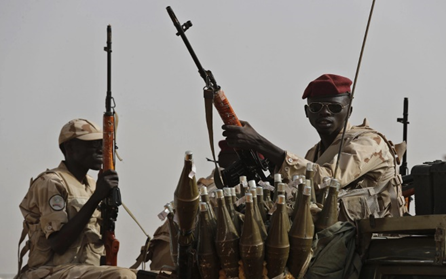
While our attention has been demanded by the tragic conflicts in Ukraine and the Middle East, the Western media has neglected the harrowing civil war raging in Sudan. This article aims to give a much-needed introduction into the origins and current happenings of this conflict as well as the involvement of the international community.
What sparked the conflict?
On 15th April 2023, shooting began between the two warring military factions: the Sudanese Armed Forces and the paramilitary group Rapid Support Forces (RSF). This violence resulted from a culmination of tensions emerging from the 2019 coup d’état of the long-standing president Omar al-Bashir. The protests prior to which demanded the end of the president’s nearly three-decade rule (since 1989) and the establishment of democratic governance. This was to be achieved through the creation of a military-civilian led government, which was swiftly dismantled by another coup in 2021.
Who were the actors responsible for this conflict?
The key players in this ongoing conflict are Abdel Fattah al-Burhan, the head of the Sudanese Armed Forces and de facto leader of Sudan, and Mohamed Hamdan Dagalo, widely known as Hemedti, the leader of the RSF.
These former allies have commenced this brutal civil war, driven by three key factors. Firstly, the perceived threat from the Sudanese Armed Forces of the RSF’s increasing military presence over Sudan. Secondly, the grapple of power between these two men who don’t want to relinquish their wealth and influence. And thirdly, tensions over resources between non-Arab farming communities and Arab pastoralist communities.
What are the current developments?
The conflict is currently categorised by the UN as ‘one of the worst humanitarian nightmares in recent history’. This incessant fighting began in the capital Khartoum and spread to North & West Darfur, North Kordofan and most recently to the state of Al Jazira. This has led to alarming humanitarian consequences, with more than a quarter of Sudan’s population forced to flee their homes due to the violence and an additional half of the population being left into a severe state of hunger.
The brutality of the RSF and its allies has continued to increase as evidence of ethnic cleansing committed against Massalit and non-Arab communities has been reported by the BBC and Human Rights Watch. Furthermore, the latest disturbing report from the UN has exposed the use of sexual violence as a tactic of war, alongside the torturing of civilians by the RSF and its affiliated tribes.
What is the international community doing about this?
‘The Forgotten War’ as a title for this article perfectly encapsulates the international community’s neglect of this harrowing conflict. Such indifference may be due to Western fatigue over Sudan’s ongoing history of tensions. However, to independent Sudan Analyst and Activist Elbashir Idris [on Al Jazeera], this lack of interest results from either a lack of understanding or worse, a deliberate disregard for the realities of the situation.
Whilst the conflict in Sudan has received little international media attention, Western countries have attempted to supply aid, with French president Emmaneul Macron in April pledging $2.1 billion in aid. Unfortunately, the humanitarian crisis is only exacerbated by the security risks and roadblocks, which make delivery of humanitarian aid in the country incredibly challenging. And with no peace deal in sight, fears only continue to grow.
As for Sudan’s regional neighbours, according to Reuters News Agency, UN experts report Chad, Libya and South Sudan are all backing the RSF. According to Alex De Waal from The World Peace Foundation, they are “more interested in continuing/escalating the war than seeking its solution”.



Average Rating